Our first carbon neutral tile
Durable, high-tech porcelain tile – American-made from start to finish.

Because we consider the carbon footprint of our tiles from inception through demolition - our carbon credits do more for the environment than others.
Durable, high-tech porcelain tile – American-made from start to finish.
Say hello to the newest members of our carbon neutral tile roster, Beljn™ and Argent 2.0™. As with all Crossville products, these new collections are carefully and responsibly manufactured in the USA. With the Civilization™, Native Metal, Beljn, and Argent 2.0 collections on our roster, we’re taking a significant first step toward achieving our current short-term goal of a 30% carbon footprint reduction.
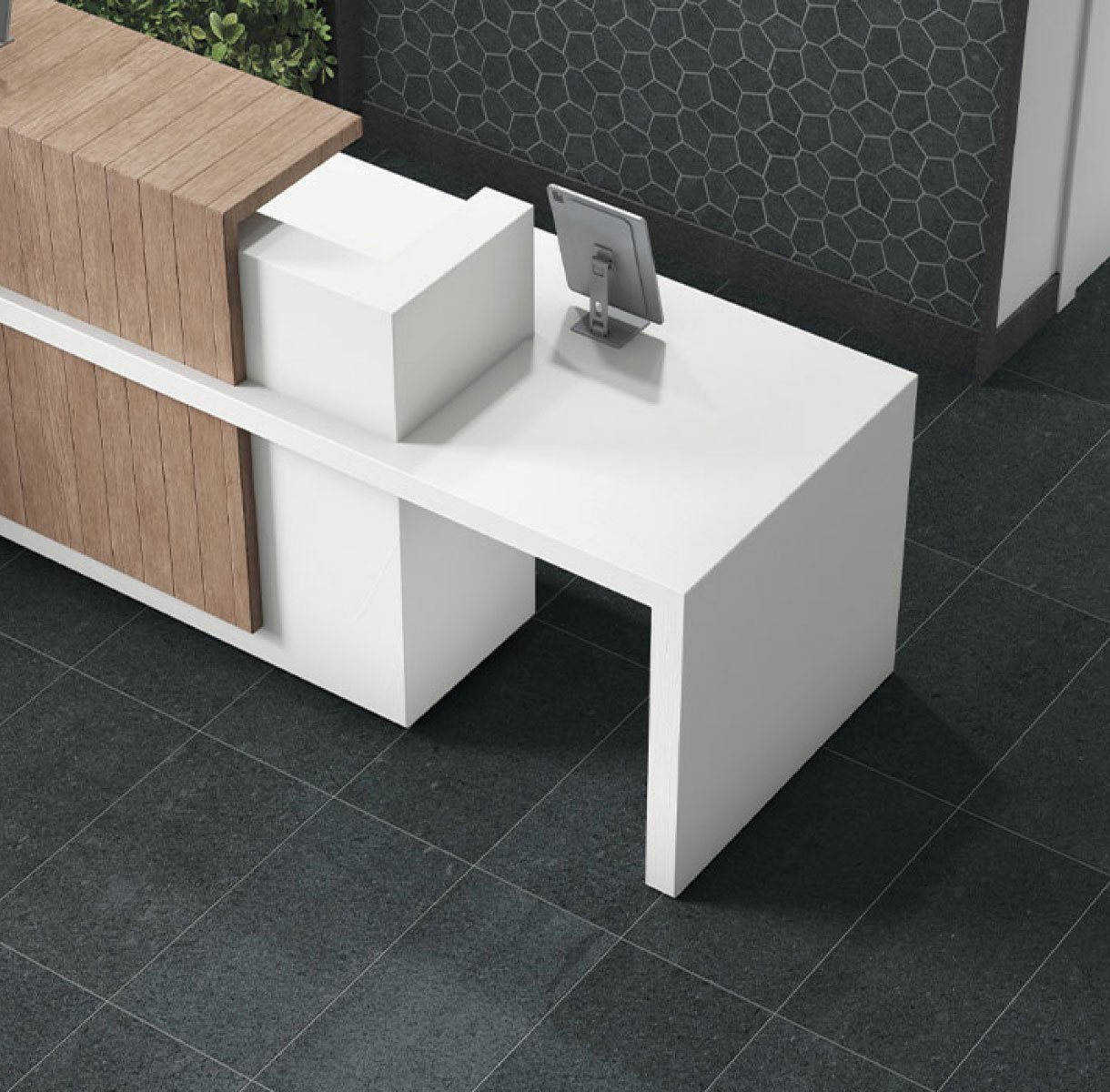
In 2014, Crossville completed its first energy usage assessment, which led us to create our Environmental Product Declarations (EPDs). At our 5-year review update in 2019, Crossville realized a 10% reduction in energy usage, demonstrating that a path of carbon reduction in our facilities and operations was possible.
The 10% reduction in energy usage is just a starting point. We can and will do more to create less impact on the environment. With this, we announce our goal for the future: Achieve a 30% carbon reduction from the 2014 baseline by 2030.
We are exploring all the ways internally that we can drive energy reduction strategies with changes to products and processes, including investigating all new evolving technologies that improve energy efficiency while maintaining a commitment not to compromise quality.
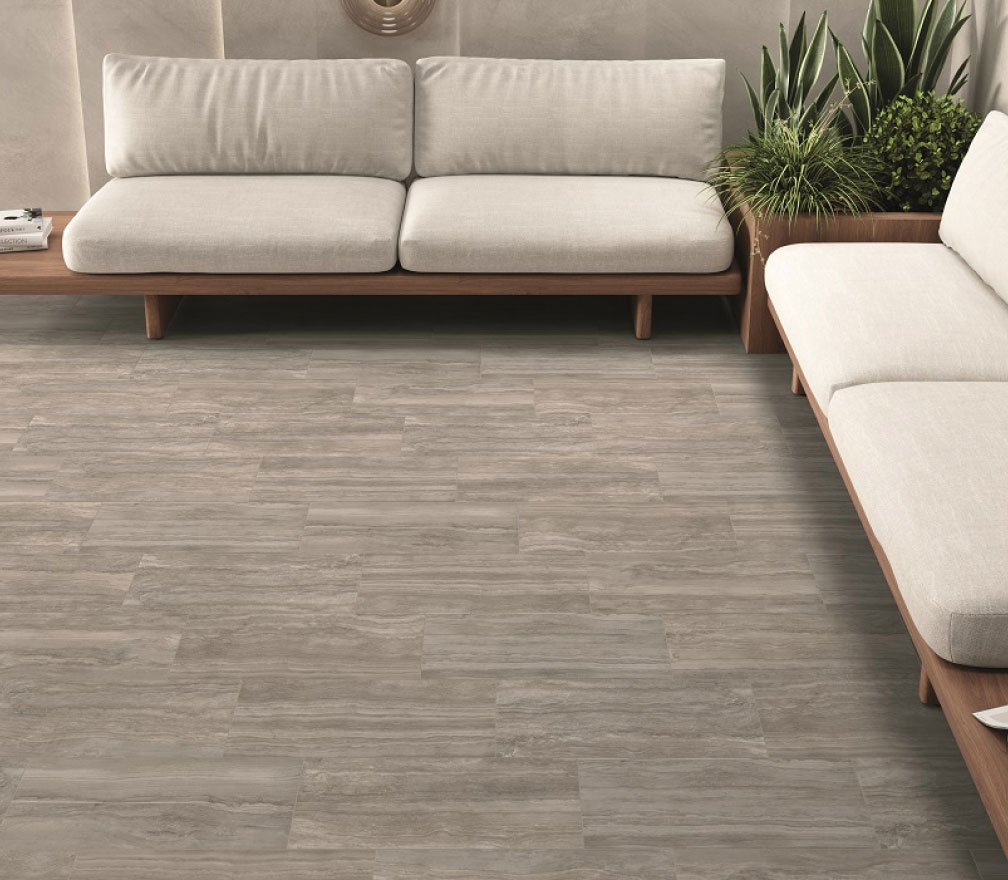
These goals reflect the changes we believe we can make to our processes to affect our global warming potential (GWP) and total carbon emissions. We are exploring all the ways internally that we can drive energy reduction strategies with changes to products, process improvements, and investigating all quickly evolving technologies that could help Crossville improve energy efficiency.
Over 70% of the impact of our products comes from utility usage. Our gas and electric partners also have goals to reduce their environmental impact. The TVA (Tennessee Valley Authority) is striving to become carbon neutral by 2050. As utility companies reduce their impact, it will greatly reduce the carbon footprint of Crossville’s manufacturing process. Crossville will continue to partner with not only our utility suppliers, but all suppliers to collectively reduce our impact.

Our ongoing commitment is to alter and reduce manufacturing’s carbon impact through changes to product and manufacturing processes. However, our products are still influenced by the energy needed to produce them. For this reason, we can further reduce our carbon footprint by purchasing verified emissions reductions, or carbon offsets, whereby embodied carbon is offset by our contributions to projects that help make the world better, greener, and more sustainable.
As we learn and grow, our sights are set on reducing the carbon footprint of all our manufactured products, and as we make further changes to our manufacturing process, the less we will need to rely on carbon offsets to do the good we know is possible.

Not all impact can be immediately done away with, but we can take responsibility for our carbon emissions. To that end, Crossville will support validated and reputable global carbon reduction and removal initiatives by purchasing carbon credits to offset impacts that we cannot immediately eliminate.
These carbon credits offset the embodied carbon from raw material sourcing, transportation of those materials to our plants, and finally producing the product. Crossville goes further by reducing the carbon footprint of our tiles through the entire product lifecycle as determined by our life cycle assessments (LCA) and reported in our EPD. Because we consider the carbon footprint of our tiles from inception through demolition, recycling, or destruction, our carbon credits do more for the embodied carbon in built environments.
For more information, check out the Carbon Leadership Forum.
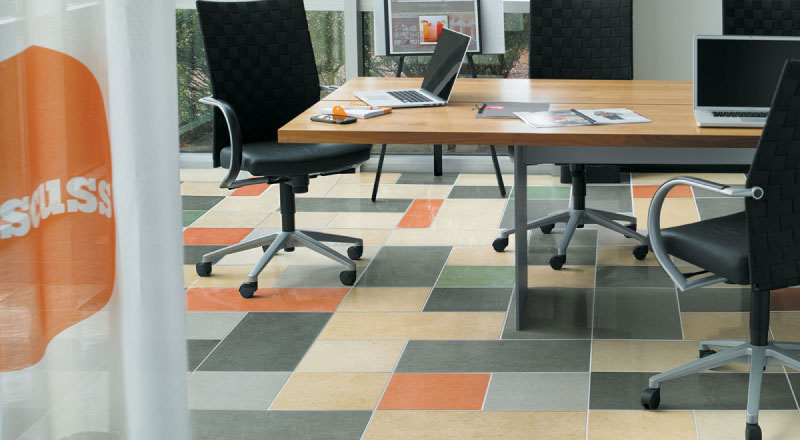
We don’t just purchase credits to offset the embodied carbon associated with manufacturing. That’s what other manufacturers call “cradle to site” or “cradle to gate” carbon reduction. We go further by purchasing credits that offset the embodied carbon of our tiles through the entire product lifecycle. By taking into account the carbon footprint of our tiles from inception through demolition and destruction, our “cradle to grave” carbon credits do more for the environment.
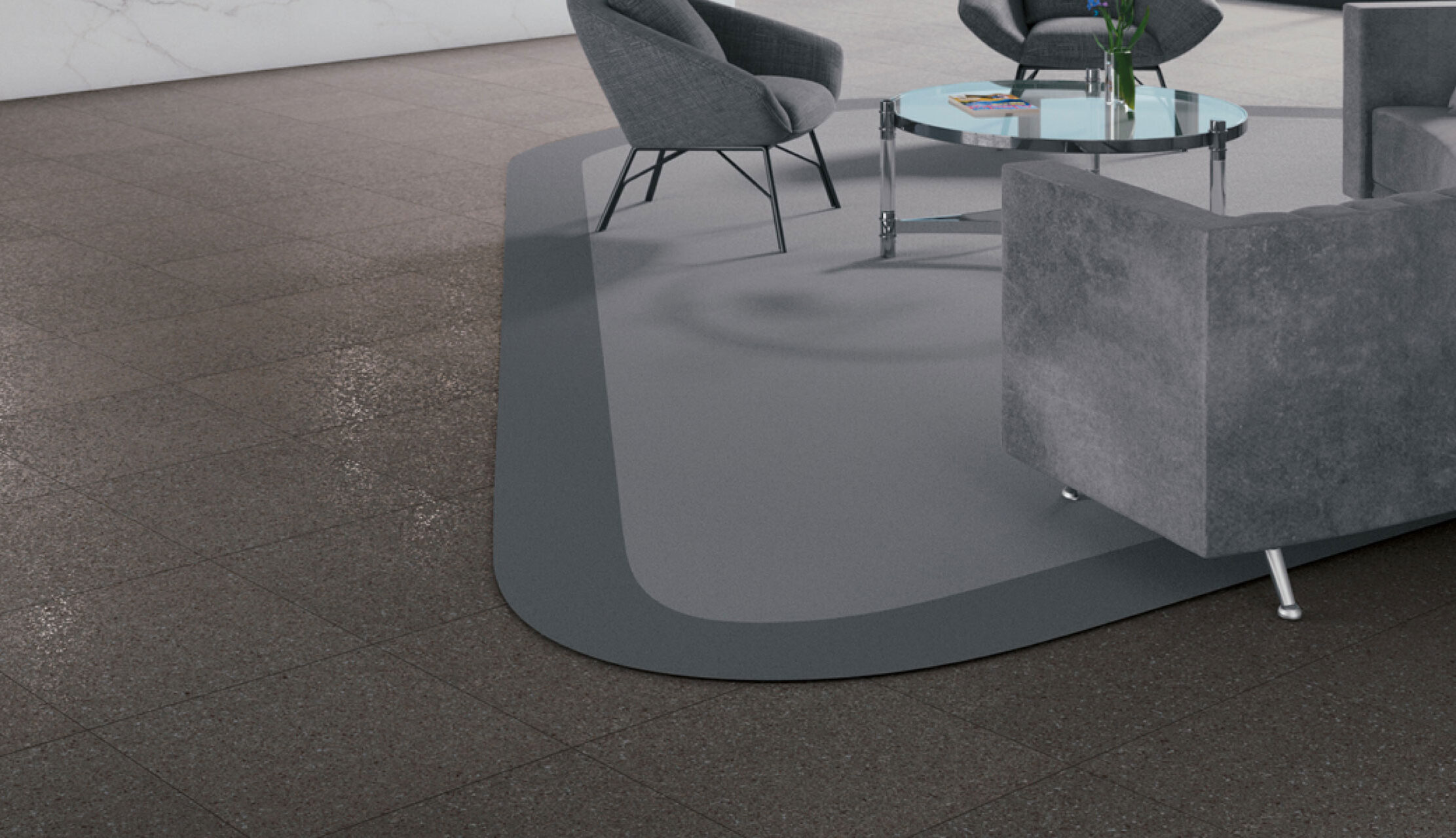


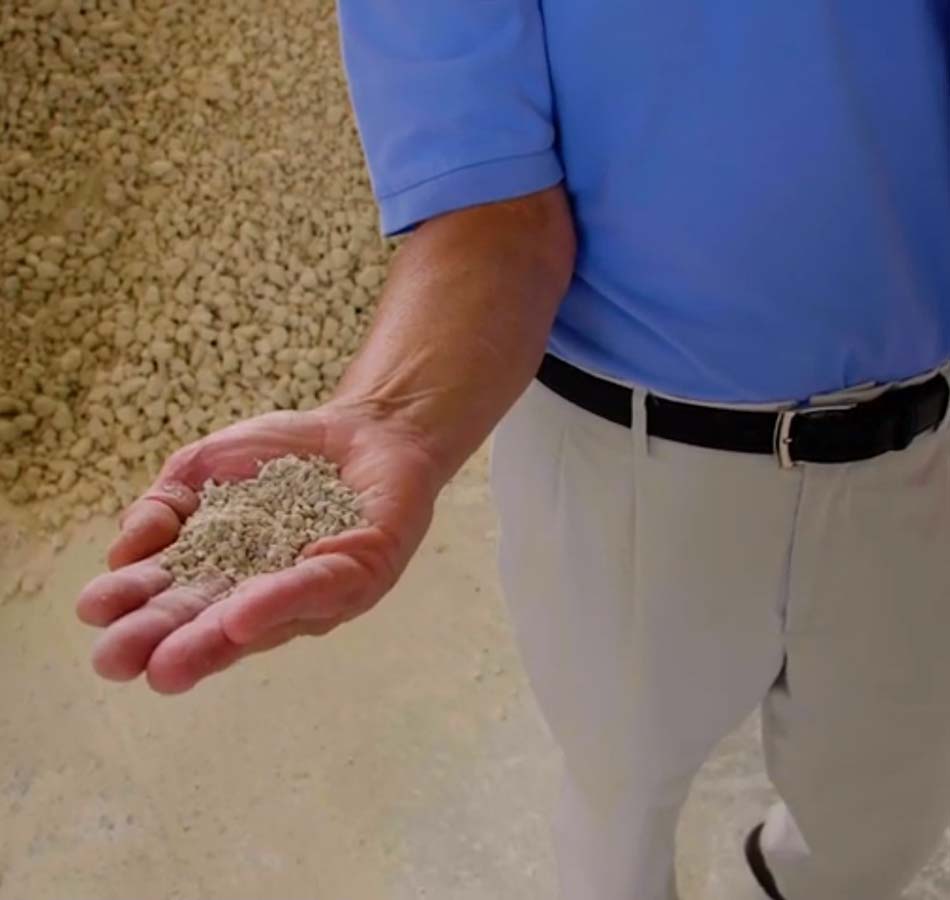



Embodied carbon consists of the CO2 emissions associated with building construction, including those that arise from extracting, transporting, manufacturing, and installing building materials on site as well as the operation and end-of-life emissions associated with the materials.
Carbon neutral tile is ceramic or porcelain tile that has been made with either zero carbon emissions, or whose associated carbon emissions have been offset with carbon credits.
Carbon credits – also known as carbon offsets – are purchased by businesses to help offset the greenhouse gasses produced in their organization. These purchases finance other companies’ projects that reduce or absorb carbon emissions. This trade allows for products whose total carbon footprint cannot be eliminated through process changes to become carbon neutral by supporting other projects.
Crossville is a leader in sustainability. From our process improvements such as recycling programs and energy reduction initiatives to third-party verified reporting such as EPDs and HPDs, we offer our customers one of the healthiest tile options one can choose with the confidence of partnering with a company that focuses on improving our built environment.
Want to get an idea of how much carbon is in your plan? Use this free EC3 calculator as a starting point. While tile is not actively included in EC3 calculations yet, Crossville is actively participating in a project with the EC3 developers to build out the tile category. It’s just another example of Crossville helping you reduce your building’s carbon footprint.
Register for the free Embodied Carbon in Construction Calculator (EC3).